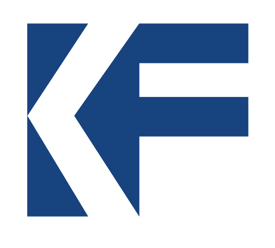You could think of it as a sort of long-term tough love. Lots of nonprofit news organizations were started with seed money from the Knight Foundation. Now, Knight wants to help them get a step closer to operating under their own power. And to get there, Knight’s willing to help them out with a little more money first.
 Knight just announced it’s launching a new $1 million fund to support innovation in nonprofit and public media organizations. The new INNovation Fund is a collaboration between Knight and the Investigative News Network, designed to grant small amounts of money to help media organizations try out new ideas in business, technology, or operations.
Knight just announced it’s launching a new $1 million fund to support innovation in nonprofit and public media organizations. The new INNovation Fund is a collaboration between Knight and the Investigative News Network, designed to grant small amounts of money to help media organizations try out new ideas in business, technology, or operations.
The $1 million will go towards around 30 projects over the next two years, with most organizations winning grants of $25,000 to $35,000. The grants are open to any online news nonprofit or public media organization in the United States. (The application period begins February 1.) INN will oversee the program, and the INN board will choose the winners.
Investing in journalism innovation is not new for Knight, which has helped countless media organizations and websites (disclosure! including this one). But with this newest investment, Knight wants to help nonprofits secure a measure of long-term security. Specifically, the grants are to help established organizations diversify their revenue streams, develop new technology, and find new ways to reach out to audiences. Marie Gilot, a media innovation associate with Knight, said applications will need to have a proper understanding of the site’s audience, a plan of action, and methods for measuring success.
What is Knight not looking to fund? “This is not about funding content. This is about funding sustainability,” said Gilot.
That’s about as clear a message as Knight can send about its current outlook on funding journalism. Knight has been steadily refining its mechanisms for funding journalism — consider the recent iterations of the Knight News Challenge and the rise of the Knight Prototype Fund. The INNovation Fund is part of a broader Knight Local Media Initiative, which has $5 million earmarked for cementing sustainability in the local news sector.
The $1 million in grants comes out of that $5 million pot. As part of the initiative, Knight will be investing another $3.5 million to 25 local news outlets who have “demonstrated potential for growth, operating for at least three years.” Officials at Knight said the names of those organizations have not yet been released.
Last fall, Knight released a report card on nonprofit news and found a number local, state, and topic-based nonprofit news outlets who continue to grow and thrive. But the report found it was an uncertain growth — while more news sites are decreasing their reliance on foundation funding, many outlets lack the business-side talent or technical know-how to continue their ascent.
Michael Maness, Knight’s vice president for journalism and media innovation, said the INNovation fund is a response to the needs outlined by many nonprofits in last November’s report. “This is still such a nascent space, but we’re starting to see areas that are really important,” Maness said.
For most nonprofit news organizations, the problem isn’t the journalism — it’s the business, a fact which stems from the fact that many of them were created by journalists unexperienced on the dollars side of the business. Journalists built sites like Voice of San Diego, MinnPost, and the New Haven Independent because of a perceived lack in coverage from other news sources, Maness said. What the nonprofit report showed is that one of the keys to survival in the nonprofit news universe is expanding the types of revenue you pull in, from memberships to events and sponsorships, he said.
The small-scale grants may not seem like a lot of money, especially when Knight has awarded six- and seven-figure sums to innovation projects in the past. But the point of the grants is for nonprofit news companies to take a shot at an idea they might not otherwise have the money or resources to pull off at the moment. “One of the ideas is to say, ‘Hey, I want to try this, we don’t have the financial bandwidth to experiment, but we know everyone needs to be experimenting all the time,'” Maness said.
But Knight is realizing that not all nonprofit news outlets are created equal. The report last fall was the second from Knight to analyze the state-of-play in nonprofit news. As Knight has tried to become more effective in how it funds innovation, that could mean some nonprofits will fall by the wayside. “It’s like anything else: You’ll see some now that might not keep going. It’s part of the era that we’re in,” Maness said. “But we’ve got to make sure it’s not from a lack of adequate resources.”
The question of resources is one reason Knight is working with INN. As part of the Knight Local Media Initiative, INN will receive $500,000. The organization currently helps nonprofits through providing technical assistance, legal consultations, and business training. Maness said nonprofit news executives who went through business training have reported revenue increases.
There’s no single right answer for nonprofit news outlets looking to find success, Maness said. The hope is that through trial and error and other experiments each newsroom will find what works and share those findings with others. “What we really want is to facilitate their ability to do this work and celebrate what they’re doing through innovation work,” Maness said.